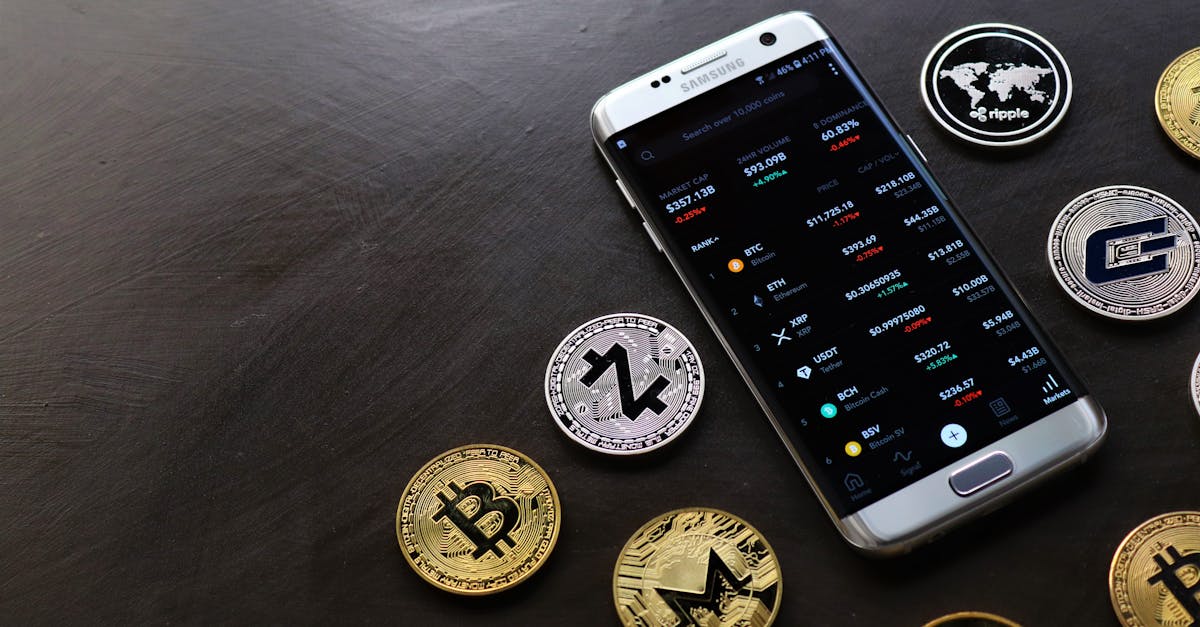The Digital Wallet Revolution of 2024
Introduction
The year 2024 marks a pivotal era in the world of digital finance as digital wallets increasingly become a staple in everyday transactions. Thanks to their convenience and security, digital wallets have already begun to surpass traditional payment methods like cash and cards. This shift is not just a trend but a revolution reshaping how we conduct financial exchanges. With the integration of cutting-edge technologies and cryptocurrencies, digital wallets are set to provide unparalleled financial experiences. But how exactly are these digital wallets transforming the financial landscape? What makes them secure, and what challenges lie ahead as we rely more on digital currency? These questions are at the heart of understanding the Digital Wallet Revolution of 2024.
Advertisement
Understanding Digital Wallets
At their core, digital wallets are software applications that store users' payment information and digital currencies securely. These innovative tools enable seamless transactions, whether you're buying a coffee or transferring money to a friend halfway across the world. Unlike traditional wallets, digital wallets can manage multiple currencies and offer features like payment tracking, budgeting, and reward management. By connecting directly with bank accounts and credit cards, they act as a comprehensive financial hub for users. As more people become digitally literate, the appeal of digital wallets continues to grow, propelling us into a cashless future.
Advertisement
Key Technologies Driving Innovation
Several cutting-edge technologies are propelling the digital wallet revolution. Blockchain stands out as a transformative force, offering a secure and transparent ledger system for transactions. Furthermore, advancements in biometric authentication, such as fingerprint and facial recognition, ensure user security without compromising convenience. Additionally, near-field communication (NFC) technologies have simplified contactless payments, making them a practical option for quick purchases. Artificial intelligence has also found its way into digital wallets, learning user preferences, and offering personalized financial advice, thereby enhancing the user experience significantly.
Advertisement
Meeting the Security Challenge
Security remains a top priority as digital wallets grow in popularity. Encryption and secure socket layer (SSL) technologies play a crucial role in safeguarding personal information and ensuring transaction integrity. Multi-factor authentication further bolsters security by requiring users to pass multiple verification steps before access. Nevertheless, as digital wallets become widespread, cybercriminals evolve, presenting challenges developers and users must continually address. Staying vigilant and adopting the latest security measures is vital to maintaining trust in digital financial transactions.
Advertisement
Cryptocurrencies and Digital Wallets
The integration of cryptocurrencies into digital wallets is a game-changer. It offers users the ability to conduct transactions using digital assets like Bitcoin and Ethereum, expanding their purchasing power globally. Cryptocurrency wallets often showcase hybrid functionalities, accommodating both digital assets and traditional currencies in a single platform. Through decentralized finance (DeFi) applications, users can lend, borrow, and earn on their holdings directly from their wallets. This convergence not only democratizes finance by making it accessible to a broader demographic but also enhances financial autonomy for users worldwide.
Advertisement
Digital Wallets in Emerging Markets
In areas where banking infrastructure is underdeveloped, digital wallets provide crucial financial access. For communities without reliable banking services, mobile-based wallets offer an introduction to the digital economy, enabling savings, payments, and lending opportunities. Governments and NGOs in these regions see digital wallets as tools of empowerment, offering programs to boost financial literacy and inclusion. In bridging financial gaps and promoting economic equality, digital wallets are playing a transformative role in developing economies, redefining the meaning of banking for billions.
Advertisement
Consumer Adoption and Trends
As technology evolves, consumer preferences are shifting towards smart and convenient financial solutions. A younger, tech-savvy generation is more inclined to adopt digital wallets, motivated by their ease of use and integration with wearable devices. Loyalty programs and reward systems integrated within wallets drive adoption by offering incentives for frequent use. Meanwhile, businesses embracing digital wallets enjoy streamlined operations, reduced overhead costs, and a competitive edge. The dual appeal to both consumers and businesses underscores the expansive growth potential of digital wallets in the contemporary market.
Advertisement
Obstacles on the Digital Pathway
Despite their advantages, digital wallets face hurdles that may impede their progress. Regulatory frameworks must evolve to address the complexities of digital transactions while ensuring security and privacy for users. Skepticism among older demographics, wary of digital financial solutions, highlights the need for targeted education and awareness campaigns. Potential technical glitches and outages could also affect user confidence, emphasizing the importance of robust infrastructure. As we advance, addressing these challenges is imperative for the sustained growth and success of digital wallets.
Advertisement
Future Prospects and Innovations
The future of digital wallets is rich with promise, paving the way for a fully digitized financial ecosystem. Emerging technologies like quantum computing hold potential to revolutionize how transactions are processed, making them even faster and more secure. Collaborations between tech companies and financial institutions promise to introduce innovative features that enhance usability and efficiency. As more nations explore launching digital versions of their currencies, digital wallets could become central to national economies. The path forward will undoubtedly involve continual adaptation and evolution, driving further advancements in our digital financial landscape.
Advertisement
Conclusion: A New Era of Financial Transactions
The Digital Wallet Revolution of 2024 signals a shift towards a more efficient, inclusive, and secure financial future. As these digital tools become integral to our daily lives, the convenience they offer continues to transform our relationship with money. Embracing this change requires overcoming challenges related to security, regulation, and consumer trust. However, with strategic innovations and adaptability, digital wallets are poised to redefine financial transactions globally. The journey is ongoing, and as technology advances, we are inevitably moving towards a vibrant and borderless financial experience.
Advertisement








